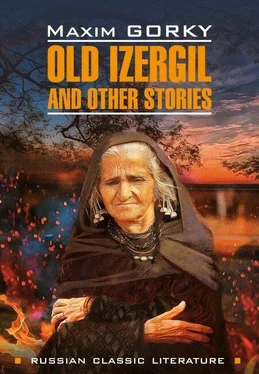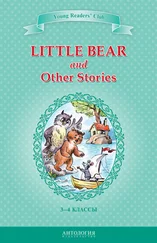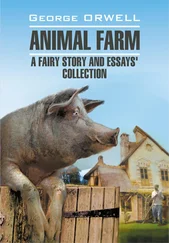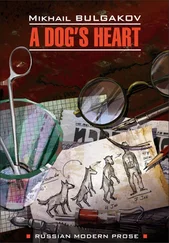Максим Горький - Old Izergil and other stories / Старуха Изергиль и другие рассказы. Книга для чтения на английском языке
Здесь есть возможность читать онлайн «Максим Горький - Old Izergil and other stories / Старуха Изергиль и другие рассказы. Книга для чтения на английском языке» — ознакомительный отрывок электронной книги совершенно бесплатно, а после прочтения отрывка купить полную версию. В некоторых случаях можно слушать аудио, скачать через торрент в формате fb2 и присутствует краткое содержание. Город: Санкт-Петербург, Год выпуска: 2018, ISBN: 2018, Жанр: Русская классическая проза, literature_20, на английском языке. Описание произведения, (предисловие) а так же отзывы посетителей доступны на портале библиотеки ЛибКат.
- Название:Old Izergil and other stories / Старуха Изергиль и другие рассказы. Книга для чтения на английском языке
- Автор:
- Жанр:
- Год:2018
- Город:Санкт-Петербург
- ISBN:978-5-9925-1335-6
- Рейтинг книги:4 / 5. Голосов: 1
-
Избранное:Добавить в избранное
- Отзывы:
-
Ваша оценка:
- 80
- 1
- 2
- 3
- 4
- 5
Old Izergil and other stories / Старуха Изергиль и другие рассказы. Книга для чтения на английском языке: краткое содержание, описание и аннотация
Предлагаем к чтению аннотацию, описание, краткое содержание или предисловие (зависит от того, что написал сам автор книги «Old Izergil and other stories / Старуха Изергиль и другие рассказы. Книга для чтения на английском языке»). Если вы не нашли необходимую информацию о книге — напишите в комментариях, мы постараемся отыскать её.
Old Izergil and other stories / Старуха Изергиль и другие рассказы. Книга для чтения на английском языке — читать онлайн ознакомительный отрывок
Ниже представлен текст книги, разбитый по страницам. Система сохранения места последней прочитанной страницы, позволяет с удобством читать онлайн бесплатно книгу «Old Izergil and other stories / Старуха Изергиль и другие рассказы. Книга для чтения на английском языке», без необходимости каждый раз заново искать на чём Вы остановились. Поставьте закладку, и сможете в любой момент перейти на страницу, на которой закончили чтение.
Интервал:
Закладка:
As the lad looked at Chelkash he recognized in him a master.
“I don’t really – er – mind,” he said. “After all, I’m looking for work. What difference does it make whether I work for you or somebody else? I just said that because – well, you don’t look much like a workingman.
You’re so – er – down at heel. But that can happen to anybody, I know. God, haven’t I seen drunks before? Plenty of them, some even worse than you.”
“All right, all right. So you’re willing?” said Chelkash in a milder tone.
“With pleasure. State your price.”
“The price depends on the job. How much we catch. Maybe you’ll get five roubles.”
Now that the talk was of money, the peasant wanted to be exact and demanded the same exactness from the man who was hiring him. Once more he had his doubts and suspicions.
“That won’t suit me, brother.”
Chelkash played his part.
“Don’t let’s talk about it now. Come along to the tavern.”
And they walked down the street side by side, Chelkash twirling his moustache with the air of a master; the lad fearful and distrusting, but willing to comply.
“What’s your name?” asked Chelkash.
“Gavrilla,” answered the lad.
On entering the dingy, smoke-blackened tavern, Chelkash went up to the bar and in the off-hand tone of a frequenter ordered a bottle of vodka, cabbage soup, roast beef and tea; he repeated the list and then said nonchalantly: “On tick,” to which the barman replied by nodding silently. This instantly inspired Gavrilla with respect for his employer, who, despite his disreputable appearance, was evidently well known and trusted.
“Now we’ll have a bite and talk things over. Sit here and wait for me; I’ll be right back.”
And he went out. Gavrilla looked about him. The tavern was in a basement; it was dark and damp and filled with the stifling smell of vodka, tobacco smoke, pitch, and something else just as pungent. A drunken red-bearded sailor smeared all over with pitch and coal-dust was sprawling at a table opposite him. Between hiccups he gurgled a song made of snatches of words which were all sibilant one minute, all guttural the next. Evidently he was not a Russian.
Behind him were two Moldavian women. Swarthy, dark-haired, ragged, they too were wheezing out a drunken song.
Out of shadows loomed other figures, all of them noisy, restless, dishevelled, drunken…
Gavrilla was gripped by fear. If only his boss would come back! The noises of the tavern merged in a single voice, and it was as if some huge multiple-tongued beast were roaring as it vainly sought a means of escape from this stone pit. Gavrilla felt some intoxication seeping into his body, making his head swim and his eyes grow hazy as they roved the tavern with fearful curiosity.
At last Chelkash came back and the two men began to eat and drink and talk. Gavrilla was drunk after his third glass of vodka. He felt very gay and was anxious to say something nice to this prince of a chap who had treated him to such a fine meal. But somehow the words that surged in his throat would not come off his tongue, suddenly grown thick and unwieldy.
Chelkash looked at him with a condescending smile.
“Stewed? Ekh, you rag! On five swigs. How are you going to work tonight?”
“Ol’ pal!” lisped Gavrilla. “Don’t be ’fraid. I’ll show you. Gimme a kiss, c’mon.”
“That’s all right. Here, take another guzzle.”
Gavrilla went on drinking until he reached the point at which everything about him seemed to be moving up and down in rhythmic waves. This was unpleasant and made him sick. His face wore an expression of foolish solemnity. Whenever he tried to say anything, his lips slapped together comically and garbled sounds came through them. Chelkash twisted his moustache and smiled glumly as he gazed at him abstractedly, his mind on something else.
Meanwhile the tavern was roaring as drunkenly as ever. The red-headed sailor had folded his arms on the table and fallen fast asleep.
“Time to go,” said Chelkash, getting up.
Gavrilla tried to follow him but could not; he let out an oath and laughed idiotically, as drunks do.
“What a wash-out!” muttered Chelkash, sitting down again.
Gavrilla kept on laughing and looking at his boss with bleary eyes, while Chelkash turned a sharp and thoughtful eye on him. He saw before him a man whose fate he held in his wolfish paw. Chelkash sensed that he could do what he pleased with him. He could crush him in his hand like a playing-card, or he could help him get back to the solid peasant way of life. Conscious of his power over him, he reflected that this lad would never have to drink the cup it had been the fate of him, Chelkash, to drink. He envied and pitied the boy; he despised him, and yet he was sorry to think that he might fall into other hands, no better than his own. In the end, Chelkash’s various emotions combined to form a single one that was both fatherly and practical. He pitied the boy and he needed him. And so he took Gavrilla under the arms and lifted him up, giving him little pushes with his knee as he led him out into the tavern yard where he laid him down in the shade of a wood-pile, he himself sitting beside him and smoking his pipe. Gavrilla tossed about awhile, gave a few grunts and fell asleep.
II
“Ready?” whispered Chelkash to Gavrilla, who was fussing with the oars.
“In a minute. The rowlock’s loose. Can I give it a bang with the oar?”
“No! Not a sound! Push it down with your hands; it’ll slip into place.”
Both of them were noiselessly busy with a boat tied to the stern of one of a whole fleet of barges-loaded with oaken staves and of Turkish feluccas carrying palm and sandal wood and thick Cyprus logs.
The night was dark, heavy banks of tattered clouds floated across the sky, the sea was calm and black and as heavy as oil. It gave off a moist saline odour and made tender little noises as it lapped at the shore and the sides of ships, causing Chelkash’s boat to rock gently. At some distance from shore could be seen the dark outlines of ships against the sky, their masts tipped by varicoloured lights. The sea reflected these lights and was strewn with innumerable yellow spots that looked very beautiful quivering upon the background of black velvet. The sea was sleeping as soundly as a workman who has been worn out by the day’s labour.
“Let’s go,” said Gavrilla, dipping an oar into the water.
“Let’s.” Chelkash pushed off hard with the steering oar, sending the boat into the lanes between the barges. It glided swiftly over the water, which gave off a blue phosphorescent glow wherever the oars struck it and formed a glowing ribbon in the wake of the boat.
“How’s your head? Ache?” asked Chelkash solicitously.
“Something fierce. And it’s heavy as lead. Here, I’ll wet it.”
“What for? Wet your insides; that’ll bring you round quicker,” said Chelkash, holding out a bottle.
“Ah, God be thanked.”
There was a gurgling sound.
“Hey! That’s enough!” interrupted Chelkash.
Once more the boat darted forward, weaving its way among the other craft swiftly and soundlessly. Suddenly it was beyond them, and the sea – the mighty boundless sea – stretched far away to the dark-blue horizon, from which sprang billowing clouds: grey-and-mauve with fluffy yellow edges; greenish, the colour of sea water; leaden-hued, throwing dark and dreary shadows. Slowly moved the clouds across the sky, now overtaking each other, merging in colour and form, annihilating each other only to appear again in new aspects, grimly magnificent. There was something fatal in the slow movement of these inanimate forms. It seemed as if there were endless numbers of them at the rim of the sea, and as if they would go on crawling across the sky for ever, impelled by a vicious desire to keep the sky from gazing down upon the slumbering sea with its millions of golden orbs, the many-hued stars, that hung there alive and pensively radiant, inspiring lofty aspirations in the hearts of men to whom their pure shine was a precious thing.
Читать дальшеИнтервал:
Закладка:
Похожие книги на «Old Izergil and other stories / Старуха Изергиль и другие рассказы. Книга для чтения на английском языке»
Представляем Вашему вниманию похожие книги на «Old Izergil and other stories / Старуха Изергиль и другие рассказы. Книга для чтения на английском языке» списком для выбора. Мы отобрали схожую по названию и смыслу литературу в надежде предоставить читателям больше вариантов отыскать новые, интересные, ещё непрочитанные произведения.
Обсуждение, отзывы о книге «Old Izergil and other stories / Старуха Изергиль и другие рассказы. Книга для чтения на английском языке» и просто собственные мнения читателей. Оставьте ваши комментарии, напишите, что Вы думаете о произведении, его смысле или главных героях. Укажите что конкретно понравилось, а что нет, и почему Вы так считаете.












